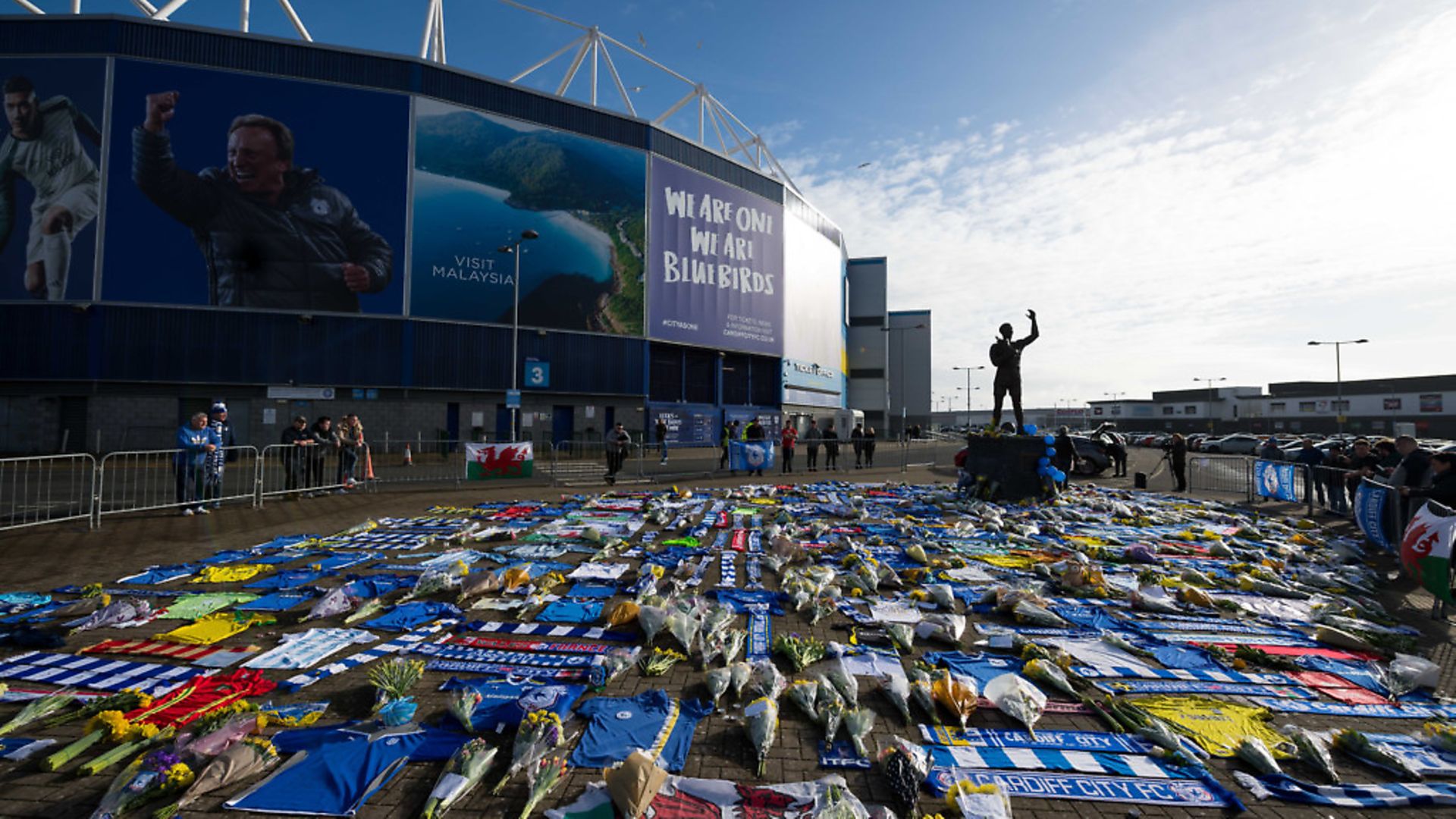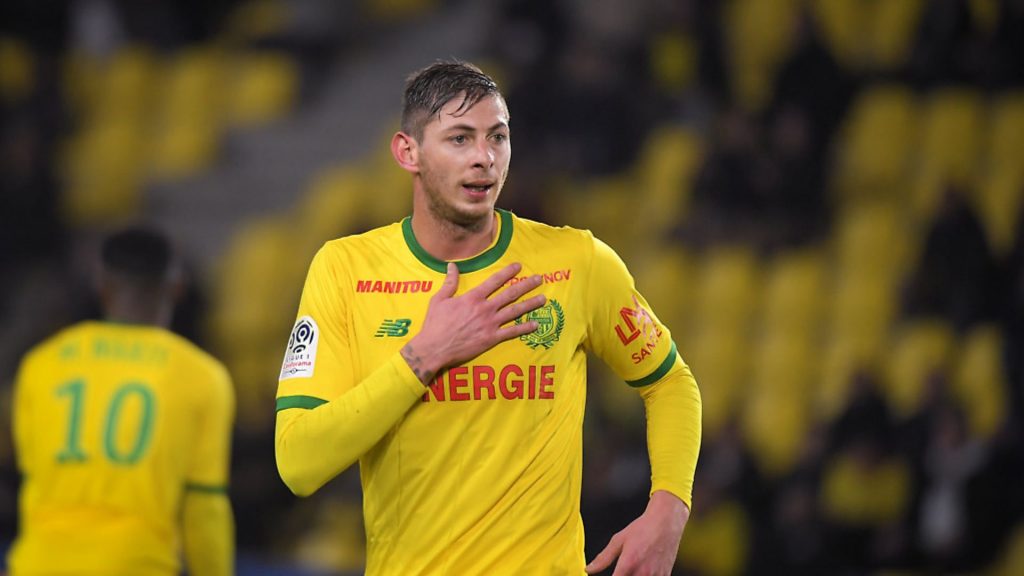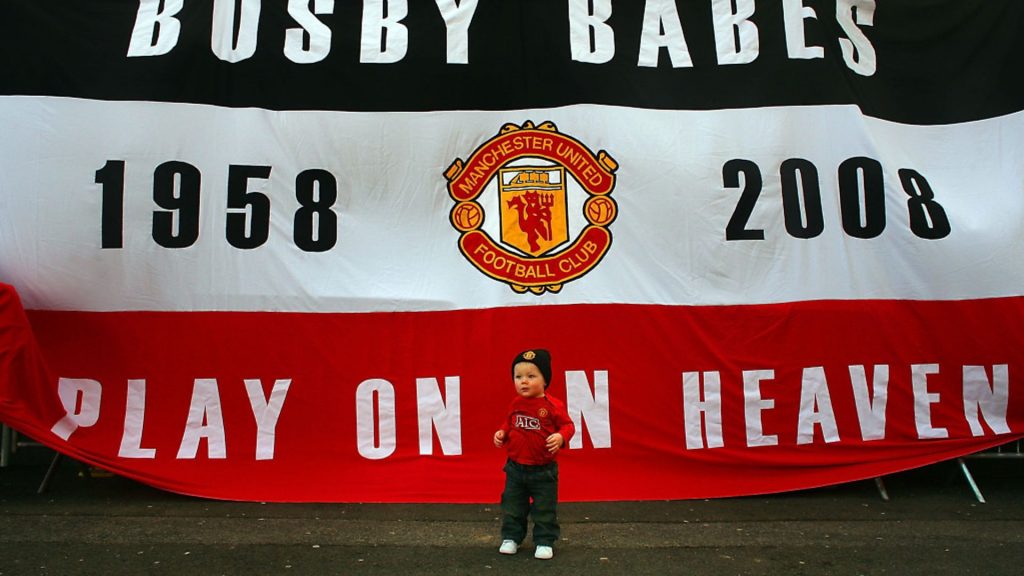
Why does the death of a footballer produce such a particular and profound sense of pathos? asks CHARLIE CONNELLY
When the aircraft intending to carry 28-year-old Argentinean footballer Emiliano Sala from Nantes to Cardiff disappeared over the English Channel north of Alderney, shock and bewilderment spread throughout the football world. In Nantes, the Breton city for whose team Sala had played 120 times, flowers and candles were left in the town square. While at Cardiff City, for whom the striker had just signed, scarves and flowers gradually spread across the tarmac outside the Bluebirds’ stadium.
The reaction was no less bereft beyond the two clubs directly affected by what is almost certainly Sala’s premature demise. Cardiff’s biggest rivals Swansea City for example, with whom there has traditionally been a fierce mutual antipathy, expressed their sorrow via a message on their stadium screens during a minute’s applause for Sala ahead of their FA Cup tie with Gillingham five days after his disappearance, as empathy trumped enmity.
As the days passed with no sightings of either the plane or its occupants this growing, shared grief spread beyond borders as clubs, players and supporters across the world felt keenly the loss of a young man whom most had never even seen play.
We live in a world of everyday tragedy. Accidents, illness, murder, suicide: none of us are left untouched by the mixture of shock, anger and sorrow that greets the untimely death of someone close to us. But when a footballer dies, someone we’ve never met, even someone who’s never even played for our team, we plumb extra fathoms in the depth of our response.

Football is a game forged in ritual. As fans we usually travel to the stadium the same way, sit or stand in the same spot, greet the same people around us, applaud our players as they come out to warm up, roar our support as the game kicks off and invent songs and chants praising our heroes.
It’s something that begins in childhood, continues through adolescence and defines our adulthood right into old age. Yes, these routines are unquestionably based in expressions of tribal aggression and territorialism, but deep down there is a tangible innocence about being a football supporter.
I have never lost the thrill of seeing the pitch for the first time when I enter a football ground. I’ve walked through the narrow streets of terraced houses, squeezed through the dingy turnstiles, followed the flow of people up the dimly-lit stairs and suddenly there’s a burst of colour as the vivid green expanse of turf opens out in front of me. Empty, despite the thousands of people gathering at its periphery. It’s a sacred space, one on which mortals like me will never tread and could never belong, the space where ever since I was a little boy I’ve watched my heroes do battle on behalf of Charlton Athletic.
I’ve retained the optimism that my team can achieve great things that underpinned my childhood despite decades of evidence to the contrary and even now that most of the players I watch are young enough to be my sons I’ve never lost that awe at their abilities and achievements. Nor have I lost the sense they’re representing something more profound than just a sports club.

A football club is a genuine community – geographically, socially and historically – and it’s one based around a hierarchy at the top of which are the 11 players representing your team. It’s irrational, such unquestioning devotion would be ridiculous in any other sphere of life, but it’s a feeling that never diminishes.
Invested in those 11 players are the hopes and dreams of every supporter, accumulating over lifetimes and across generations, the very foundations on which our love and enthusiasm for the game and our clubs are built. We live for the joys those players bring us however brief and rare they may be, whether it be a trophy cabinet packed with silverware, a victory over our biggest rivals or even just a sublime moment of skill and invention that sees the ball end up in the back of the net.
In those moments we are as children again, experiencing an intense, unbridled form of joy rarely felt in other walks of life. There’s an innocence in that joy, an innocence in our desire for it and an innocence in the extraordinary regard we invest in those eleven players out there on the field. When death settles upon that joy it evokes a different kind of intensity.
Aircraft accidents like that which befell Sala have a raw legacy in the history of football. Manchester United came almost to be defined by the Munich disaster of 1958 in which eight players and three backroom staff were among the 23 fatalities who died in the snow on the runway.
Torino have never been remotely the force they were before the aircraft bringing their stellar, multi-championship winning squad back from a friendly in Lisbon smashed into a basilica on a hillside above Turin one dark, stormy afternoon in 1949 with no survivors. In the hearts of their supporters however, like the Busby Babes of Old Trafford, Il Grande Torino live on forever, the memorial at the crash site permanently festooned with flowers and scarves in club colours, even though hardly anyone alive today actually saw them play.
There are the individual tragedies too. In 1931 the Celtic goalkeeper John Thomson died after his head collided accidentally with the knee of the Rangers forward Sam English during an Old Firm match at Ibrox Park, a death still commemorated by a dedicated John Thomson Memorial Committee.
Also in Scotland, Motherwell’s Fir Park has a Phil O’Donnell Stand named after their former captain who collapsed and died on the field during a match with Dundee United in December 2007, while in 2017 Highgate United, a non-league club from the West Midlands, opened the Tony Allden Stand commemorating their 23-year-old centre-half who was struck by lightning and killed during an FA Amateur Cup quarter-final with Enfield 50 years earlier in 1967.
What is it about the death of a footballer that invokes such an intensity of feeling and persistence of memorial? For one thing, when a footballer steps out onto the field they carry with them our hopes and dreams. The sliver of childlike innocence in the heart of every football fan is invested in those players who carry with them our irrational belief that our side will triumph over greater foes.
We’ve all played football as children and experienced that rush of joy that comes from running, shooting and scoring. The players we watch have taken that joy to its highest technical and physical peaks and we are in awe of them for it.
We see them for barely two hours every week but in that time footballers are about as alive as it’s possible to be, sprinting, chasing, tackling, shooting, and when the ball hits the back of the net we share an extraordinary intensity of feeling with them, a primal burst of sheer, unconfined happiness. There’s an intimacy about the fan-player relationship that reaches its zenith at that moment of raw emotion where nothing else matters, all our worries and fears are forgotten and our emotions are at a peak unmatched in the drudgery of everyday life.
That’s why the outpouring of dismay and grief at the disappearance of Sala is so intense and sustained: the death of a footballer invokes a very particular kind of pathos and sorrow. Even for those of us who never saw him play, he carried our dreams with him and his talent had allowed him the opportunity to fulfil them.
That someone so alive, so infused with the hopes of generations of fans, could simply vanish into the night over a dark sea is almost impossible for us to accept. The larcenous nature of death has in Sala taken a son, a brother, a friend, but it’s also stolen a small part of every football fan in the world.










